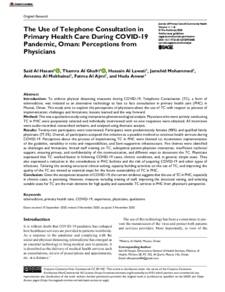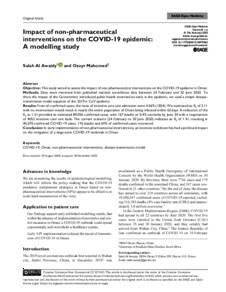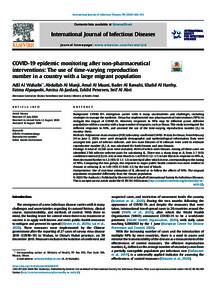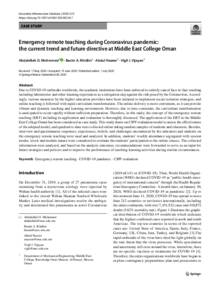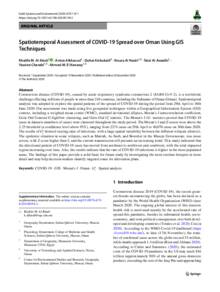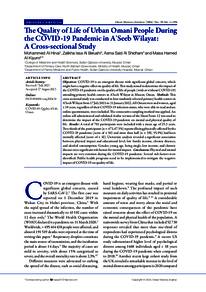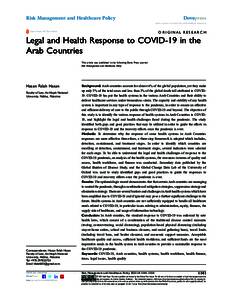Document
The use of telephone consultation in primary health care during COVID-19 pandemic, Oman : perceptions from physicians.
Identifier
DOI: 10.1177/2150132720976480
Source
Journal of Primary Care and Community Health. v. 11
Contributors
Al-Ghafriyah, Thamra., Author
Al-Lawati, Hussain., Author
Mohammed, Jamshid., Author
Al-Mukhainiyah, Ameena., Author
Al-Ajmiyah, Fatma., Author
Anwar, Huda., Author
Country
United States.
Publisher
SAGE Publications Inc.
Gregorian
2020-01-01
Language
English
English abstract
Introduction: To enforce physical distancing measures during COVID-19, Telephone Consultation (TC), a form of telemedicine, was initiated as an alternative technology to face to face consultation in primary health care (PHC) in Muscat, Oman. This study aims to explore the perceptions of physicians about the use of TC with respect to process of implementation; challenges and limitations; lessons learned and the way forward. Method: This was a qualitative study using interpretive phenomenological analysis. Physicians who were actively conducting TC in PHC were purposively selected and individually interviewed until no new responses were obtained. All interviews were audio-recorded, transcribed verbatim, and analysed using thematic analysis. Results: Twenty-two participants were interviewed. Participants were predominantly females (98%) and qualified family physicians (77.3%). Overall, all participants accepted this initiative as a possible method to continue health services during COVID-19. Perceptions about the process of implementing TC in PHC were themed to; inconsistent implementation of the guideline, variability in roles and responsibilities, and Semi-supportive infrastructure. Five themes were identified as challenges and limitations: limited staff training on TC, suboptimal patient-physician interaction, insufficient technical support, ensuring privacy, and confidentiality of the communication, and different ways to document the TC. Physicians expressed that TC worked better in following COVID-19 cases, chronic conditions, and, in general, simple cases. They also expressed a reduction in the crowdedness in PHC facilities and the risk of acquiring COVID-19 and other types of infections. Tailoring the existing structural clinical setting, capacity building activities on the use of TC, and improving the quality of the TC are viewed as essential steps for the future sustainability of TC in PHC. Conclusion: Given the exceptional situation of COVID-19, the current evidence suggests that the use of TC in PHC, especially in chronic cases, is promising. However, measures including training of staff, improving the structural setting, and selecting suitable cases for TC are the main elements for high quality and sustainable TC services in PHC from physician’s perspective.
ISSN
2150-1319
Resource URL
Category
Journal articles

